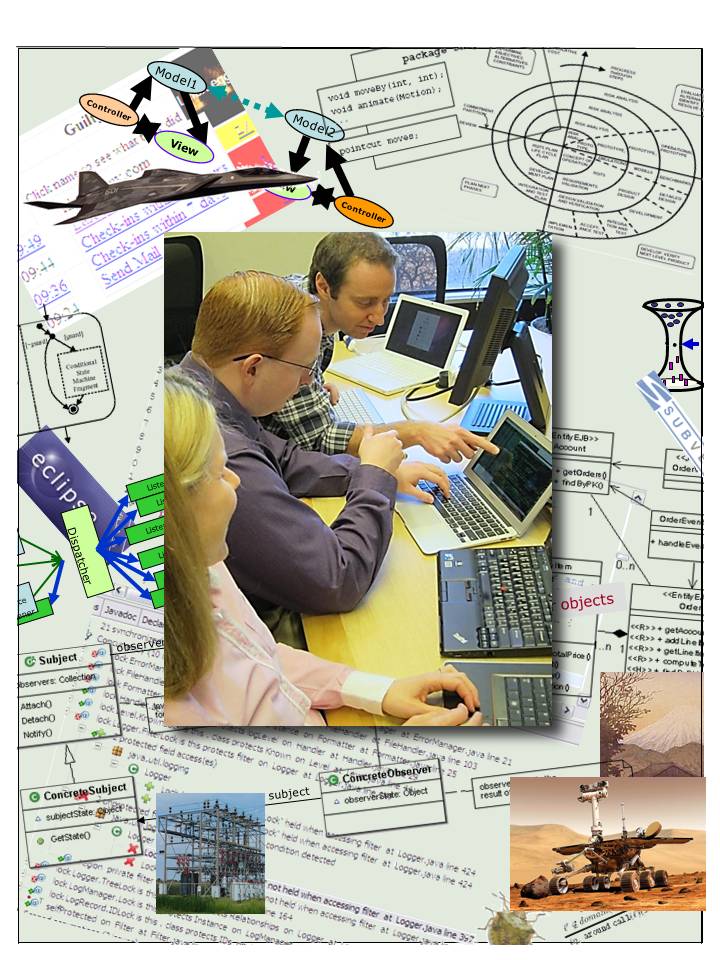February 16, 2012 - Washington, DC Overview and Agenda Photos
Software and Strategy
![]() Download Summary
Download Summary
![]() Download PDF Slides
Download PDF Slides
![]() Download Video
Download Video
Summary

Software has scaled dramatically not only in functional capability, but also in its role in interlinking organizations and conferring agility in the enterprise. Technical advances in software have enabled diverse software supply chains and the development of rich socio-technical ecosystems such as for mobile devices (iOS, Android), web services (ASP.Net, Java EE, LAMP), cloud‐based services (Google, Amazon, Facebook), and enterprise services (ERP, SCM, CRM), as well as infrastructural ecosystems such as for utilities, logistics, and transportation.
Although Moore's Law and the growth of the Internet have enabled this scaling, it is not a consequence of these things. The scaling derives from a rich and diverse set of deep technical advances in languages for writing software, in modeling and analysis techniques to support software creation, in the practices used by teams of developers, and in the tools used by individuals and teams to support these practices. Federal investments have been critical enablers of these advancements.
In the economy, software has a unique role, conferring competitive advantage in sectors ranging from financial services and health care to logistics, manufacturing, utilities, and transportation. The role of software capability as a competitive attribute will continue to increase. Indeed, ICT drives between 20 and 25 percent of economic growth in the U.S. and Europe, despite its smaller share of overall economic activity. In national security, the pivotal role of software capability is strongly asserted in studies from the Defense Science Board and the National Research Council.
In the cybersecurity landscape, software advances continually change the character of the engagement - as the technologies evolve, old vulnerabilities can be eliminated but, unfortunately, new ones often emerge. Regardless, software engineering capability strongly influences the nature and extent of vulnerability of systems, and the goal of designing systems with security "built in" is largely a challenge to our ability to improve technologies for software design and development.
Software, uniquely among building materials, has a symbolic nature that confers a characteristic "unboundedness." There are, in other words, few limits going forward to continued rapid advancement of software capability, and the pace of this advancement is, if anything, increasing. As a consequence, staying ahead in software technology grows in significance as a national economic and security priority. Federal investment has been an historical driver of our technical leadership, which derives from a unique partnership of industry, government, and academia. Looking ahead, the roles of Federal agencies and the coordination afforded through the Federal Networking and Information Technology Research and Development (NITRD) Program become even more important in the increasingly competitive international environment.
William Scherlis
 William Scherlis is a professor in the School of Computer Science (SCS) at Carnegie Mellon University, director of the SCS Institute for Software Research, and founding director of CMU's Ph.D. Program in Software Engineering. His research relates to software assurance, software analysis, and assured safe concurrency. He completed a Ph.D. in Computer Science at Stanford University and an A.B. at Harvard University. Dr. Scherlis chaired the NRC study committee on defense software producibility, which released the report Critical Code: Software Producibility for Defense. He testified before Congress on IT innovation and, previously, regarding the Federal CIO. He has led or participated in national studies related to cybersecurity, e-government, crisis response, analyst information management, the Ada language, and health care informatics. He served at DARPA for six years, departing in 1993, with responsibilities related to research and strategy in software technology, cybersecurity, the initiation of the high performance computing and communications (HPCC) program (now NITRD), and other topics. Dr. Scherlis served as program chair for technical conferences including the ACM Foundations of Software Engineering Symposium. He is a fellow of the IEEE and a lifetime National Associate of the National Academy of Sciences.
William Scherlis is a professor in the School of Computer Science (SCS) at Carnegie Mellon University, director of the SCS Institute for Software Research, and founding director of CMU's Ph.D. Program in Software Engineering. His research relates to software assurance, software analysis, and assured safe concurrency. He completed a Ph.D. in Computer Science at Stanford University and an A.B. at Harvard University. Dr. Scherlis chaired the NRC study committee on defense software producibility, which released the report Critical Code: Software Producibility for Defense. He testified before Congress on IT innovation and, previously, regarding the Federal CIO. He has led or participated in national studies related to cybersecurity, e-government, crisis response, analyst information management, the Ada language, and health care informatics. He served at DARPA for six years, departing in 1993, with responsibilities related to research and strategy in software technology, cybersecurity, the initiation of the high performance computing and communications (HPCC) program (now NITRD), and other topics. Dr. Scherlis served as program chair for technical conferences including the ACM Foundations of Software Engineering Symposium. He is a fellow of the IEEE and a lifetime National Associate of the National Academy of Sciences.
The materials on this webpage, including speakers' slides and videos, are copyright the author(s).
Permission is granted for non-commercial use with credit to the author(s) and the Computing Community Consortium (CCC).


